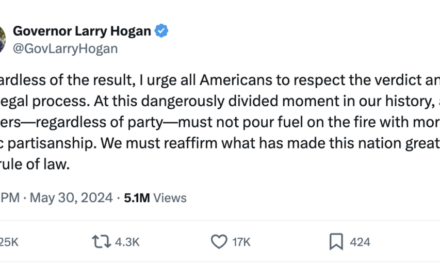We support our Publishers and Content Creators. You can view this story on their website by CLICKING HERE.
According to an exclusive Washington Examiner report last week, the House GOP warned that obesity will cost Americans up to $9.1 trillion in medical costs over the next decade. This is over double last year’s estimate and an increase of over $7 billion per year.
A report from 2021 called obesity a major public health crisis, and it’s only gotten worse since then. One in five children is reportedly obese, and one in four adults tips the scale with a body mass index (BMI) of 30 or over. Granted, BMI is not a perfect measurement and its merits can be debated, but one doesn’t really need exacting science to see that America is fat. Really fat.
And while the report includes both direct and indirect costs such as treatments for asthma, cardiovascular disease, and cancer, they are likely missing other veiled costs.
Whole Person Health
The report’s numbers, while staggering, don’t include the number of people seeking treatment for mental health conditions that many doctors won’t link to obesity. Western medicine is famous for addressing health care, like government, in silos of “expertise” without looking at the person as a holistic, symbiotic organism with a body, mind, and soul. Traditional medical training encourages students to choose areas of “expertise” like the heart or the brain or the gut without a single consideration that all these things are connected.
For example, a study from 2018 was partly responsible for discovering what has become known as “hope molecules” or mytokines that are secreted during exercise due to muscular contraction. These hope molecules cross the blood-brain barrier to positively affect mental health by reducing symptoms of depression or trauma and increasing resilience to stress.
Stanford doctor Shebani Sethi founded the first academic Metabolic Psychiatry Clinical program in 2015 to address the connection between metabolic and mental health. Dr. Sethi’s research demonstrated the success of a ketogenic diet as a metabolic treatment for mental illness including bipolar disorder, depression, and even schizophrenia.
In short, healthy people are generally happier people.
As the report also points out, the societal costs of obesity go well beyond medical payments. The obesity epidemic cuts into the overall size of the U.S. economy because of reductions in labor supply and labor productivity. The economy is expected to be between $13.5 trillion and $14.7 trillion smaller over the next decade because of obesity.
The costs to national security may not yet have been quantified monetarily, but there has been no shortage of headlines about America being “too fat to fight.” A 2020 Pentagon study demonstrated Americans aged 17-24 did not meet the military’s sign-up requirements due to being overweight, using drugs, or having mental and physical health problems.
Do Americans Have the Will to Change?
“Failure to address this growing health crisis is immoral,” stated David Schweikert, R-Ariz., vice chairman of the Joint Economic Committee that published the report. “Society has the tools at our disposal to address this crisis,” he continued.
Schweikert is right. It is immoral, and we do have the tools. We’ve always had the tools (Hint: It’s not Ozempic). It’s called healthy nutrition and exercise habits. The question is do we have the willpower and the political will to embrace the solutions?
Are the bureaucrats at the HHS, the FDA, and the USDA willing to embrace and promote the most cutting-edge nutritional science instead of bending the knee to the multibillion-dollar agriculture and pharmaceutical lobbyists? Will they change the food pyramid? Will they stop subsidizing the production of corn, wheat, and soy, and help farmers return to a sustainable form of agriculture? Will they stop insisting on sacrificing human health for some unscientific green agenda?
Are our politicians willing to put restrictions on what can be purchased with WIC and SNAP payments? Will the Department of Education instill rigorous physical education requirements for all children in public and private schools rather than insisting tampons be put in boys’ bathrooms?
Are educators and parents willing to move beyond radical gender ideology to reinstate home economic classes to teach children how to garden and cook for themselves? Are they willing to spend some more time cooking themselves?
Do parents have the resilience to endure endless tantrums when they insist their children get off their screens and get outside? Will they go out and play with them?
Clearly, there is a lot of good information out there. Dr. Sethi’s study was published in 2020, and her clinic was opened in 2015. Dr. Casey Means just published a book last month called Good Energy addressing the need to reevaluate how we look at metabolic health. Other experts such as Dr. Mark Hyman, Dr. Andrew Weil, and Dr. Kelly Brogan, just to name a few, have been touting the benefits of using food, exercise, and lifestyle as medicine for decades, even if they may have slightly different takes on the best approach.
Many of these doctors are known among the intellectual and economic elite, but their remedies are not mainstream because good health demands less dependence on a trillion-dollar sick care system and the businesses that profit from it. That includes everything from pharmaceutical companies to food corporations to the huge hospital conglomerates.
Solving the obesity epidemic is simple. But it won’t be easy and requires will, discipline, and courage — virtues that are, unfortunately, in short supply these days.

 Conservative
Conservative  Search
Search Trending
Trending Current News
Current News 





